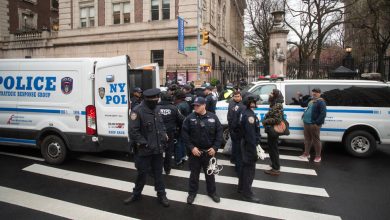Asian nations expand booster shots, with an eye on Europe’s surge.

Asian countries with some of the world’s highest vaccination rates are rushing to expand booster shots as winter approaches and the coronavirus surges again through Europe.
After initially trailing other wealthy countries on vaccinations, several Asian nations have now overtaken them. As 2022 approaches and the new Omicron variant prompts alarm, they are calibrating their booster strategies at a time when the virus is crashing through highly vaccinated countries in Europe where boosters are not yet widely available.
The European Union’s public health agency recommended on Wednesday that all adults receive a booster shot, especially people over 40. On Thursday, its executive arm proposed that residents of the bloc will need booster shots to avoid tests or quarantines when traveling to other E.U. member states.
Dr. Tedros Adhanom Ghebreyesus, the World Health Organization’s director general, has also warned against a “false sense of security” over the protection offered by vaccines. “No country is out of the woods,” he said at a news conference on Wednesday.
Officials from highly vaccinated nations in East and Southeast Asia are well aware.
Singapore, which has one of the world’s highest Covid vaccination rates, has administered two doses to nearly nine in ten residents, according to a New York Times tracker. After authorizing third doses for seniors on Sept. 14 — a few days before both Britain and the United States — the city-state is now giving booster shots to people 30 and above, as well as to health care and frontline workers over age 18.
Other Asian countries are ahead of Europe in expanding access to boosters. Already, officials in Cambodia, Malaysia and Japan — countries where nearly 80 percent or more of the populations are fully vaccinated — have announced plans to give boosters to all adults.
And last week in South Korea, where nearly four in five people are fully vaccinated, the government reduced the period between second and third doses from six months to as few as four. It also expanded eligibility for shots to people 50 and over, after opening third shots to high-risk adults and those 60 and over in late October.
Kwon Jun-wook, director of the country’s National Institute of Health, has said that South Korea weighed Europe’s situation in considering its own vaccine strategy.
“In those countries, the first wave of infections after countries began reopening were mostly among the unvaccinated,” he told reporters last week. “Then infections gradually expanded to the group with waning immunity after getting vaccinated. Now we are seeing countries in Europe and, needless to say, the United States, struggle very hard to return to normalcy.”
While studies have shown that the effectiveness of vaccines can wane over time, the need for boosters has been the subject of intense debate.
Critics say that wealthy nations must stop hoarding doses. Earlier this month, Dr. Tedros described the global disparity in Covid vaccine access “a scandal that must stop now,” noting that six times more booster shots were being administered globally than primary doses in low-income countries.



